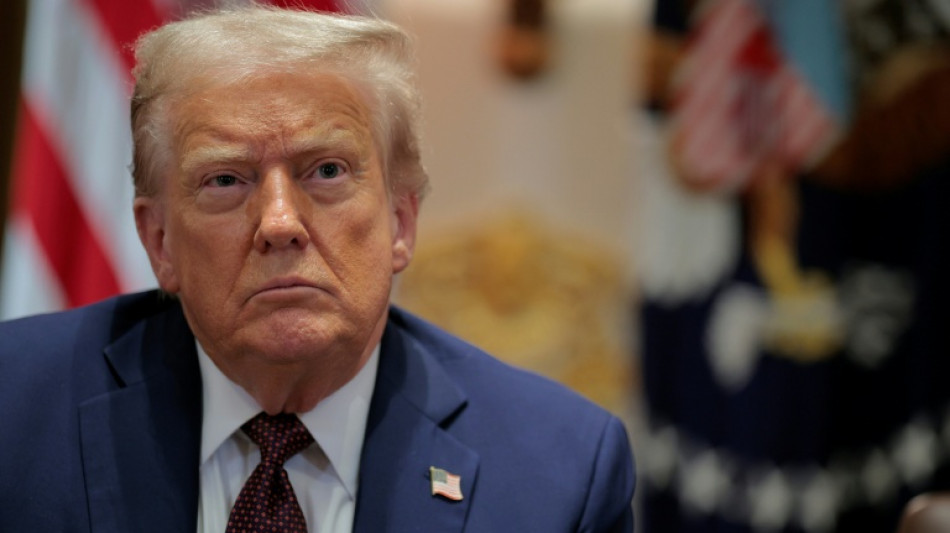
-
 Danish wind giant sues US government over project halt
Danish wind giant sues US government over project halt
-
Asian, European markets rally ahead of US jobs data

-
 US AI giant Anthropic bars Chinese-owned entities
US AI giant Anthropic bars Chinese-owned entities
-
Powerful quake aftershocks cause more injuries in Afghanistan
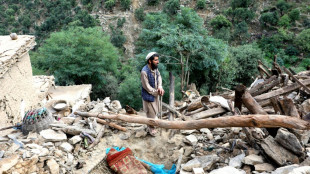
-
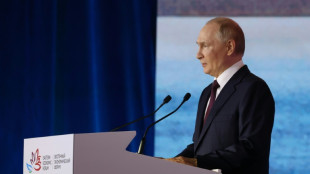 Putin threatens to target any Western troops in Ukraine
Putin threatens to target any Western troops in Ukraine
-
German factory orders drop in new blow to economy

-
 Positivity wins as Anisimova wills way into US Open final
Positivity wins as Anisimova wills way into US Open final
-
Osaka eager for more after US Open run ends in semi-finals

-
 Savea-Kolisi clash one to savour, says All Blacks captain Barrett
Savea-Kolisi clash one to savour, says All Blacks captain Barrett
-
Cooling US jobs market in focus as political scrutiny heats up
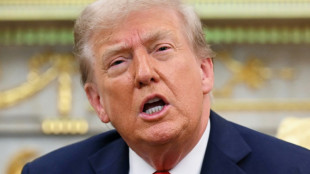
-
 Sabalenka returns to US Open final as Anisimova sinks Osaka
Sabalenka returns to US Open final as Anisimova sinks Osaka
-
Chinese firms pay price of jihadist strikes against Mali junta

-
 Europe's fastest supercomputer to boost AI drive
Europe's fastest supercomputer to boost AI drive
-
Super Bowl champion Eagles down Cowboys in NFL season opener

-
 New recipes help Pakistani mothers ward off malnutrition
New recipes help Pakistani mothers ward off malnutrition
-
'Brutal': Olympic pole vault champion Kennedy pulls out of worlds

-
 Lebanon to discuss army's plan to disarm Hezbollah
Lebanon to discuss army's plan to disarm Hezbollah
-
Australia and Argentina primed for battle of the fittest

-
 Asian markets rally as Chinese stocks selloff eases
Asian markets rally as Chinese stocks selloff eases
-
Messi hits emotional brace as Uruguay, Colombia, Paraguay seal World Cup spots

-
 'God's Influencer' to become first millennial saint
'God's Influencer' to become first millennial saint
-
Trump rebrands Department of Defense as 'Department of War'
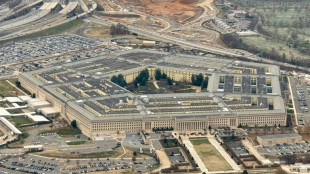
-
 Wildfires producing 'witches' brew' of air pollution: UN
Wildfires producing 'witches' brew' of air pollution: UN
-
Russia rejects Western security guarantees for Ukraine after coalition pledges force

-
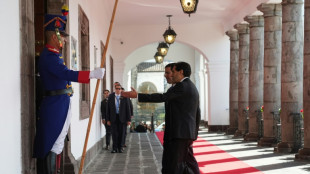 Rubio ramps up Ecuador support in tough anti-crime drive
Rubio ramps up Ecuador support in tough anti-crime drive
-
'Emotional' Sabalenka holds off Pegula to book US Open final return

-
 Records and revenge spur rivals in wide-open Rugby Championship
Records and revenge spur rivals in wide-open Rugby Championship
-
Sabalenka ready to 'kick ass' in Kyrgios 'Battle of Sexes'

-
 North Korea's Kim tells Xi hopes to 'steadily develop' ties: KCNA
North Korea's Kim tells Xi hopes to 'steadily develop' ties: KCNA
-
England's Brook rejects talk of Ashes rest after South Africa ODI series loss

-
 Messi hits brace as Uruguay, Colombia, Paraguay seal World Cup spots
Messi hits brace as Uruguay, Colombia, Paraguay seal World Cup spots
-
Toulouse still 'the hunted' as Top 14 title defence kicks off

-
 Australia's Tupou headlines Top 14 new signings
Australia's Tupou headlines Top 14 new signings
-
Tuchel faces England questions as World Cup countdown begins

-
 US tech titans pay hommage to Trump at White House dinner
US tech titans pay hommage to Trump at White House dinner
-
'Sleep under the stars': hotel mess in Brazil ahead of UN meet

-
 Sabalenka returns to US Open final as Osaka faces Anisimova
Sabalenka returns to US Open final as Osaka faces Anisimova
-
Uruguay, Colombia, Paraguay qualify for 2026 World Cup

-
 Eagles' Carter tossed from NFL opener for spitting on Cowboys' Prescott
Eagles' Carter tossed from NFL opener for spitting on Cowboys' Prescott
-
Battling Sabalenka holds off Pegula to reach US Open final

-
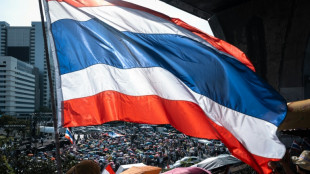 Thai tycoon leads pack as parliament votes for new PM
Thai tycoon leads pack as parliament votes for new PM
-
Farage grabs momentum, convenes hard-right Reform UK party
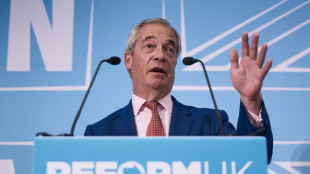
-
 New Zealand great Ross Taylor out of retirement to play for Samoa
New Zealand great Ross Taylor out of retirement to play for Samoa
-
Boxing icons Tyson, Mayweather to meet in ring in 2026
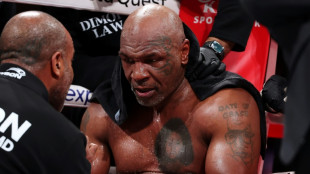
-
 Thai ex-PM leaves country before parliament votes on leadership
Thai ex-PM leaves country before parliament votes on leadership
-
NZ army appeals soldier's 'inadequate' spying sentence

-
 Coalition of willing commits to Ukraine force if peace agreed
Coalition of willing commits to Ukraine force if peace agreed
-
Powerhouse Australia 'up for challenge' of defending Women's World Cup

-
 Argentina's Independiente disqualified from Copa Sudamericana over stadium brawl
Argentina's Independiente disqualified from Copa Sudamericana over stadium brawl
-
Luis Suarez apologizes after Leagues Cup spitting incident


US strike marks shift to military action against drug cartels
US President Donald Trump's deadly strike on an alleged drug-smuggling boat from Venezuela marks a significant escalation from law enforcement to military action against cartels that his administration has branded as terror groups.
Video footage posted by Trump on social media Tuesday showed a multi-engine speedboat with several people aboard bouncing across the waves -- but rather than being stopped and boarded, the vessel is suddenly engulfed in an inferno.
The US president said 11 members of the Tren de Aragua gang were killed in the strike, which should "serve as notice to anybody even thinking about bringing drugs into the United States of America."
Ryan Berg, director of the Americas Program at the Center for Strategic and International Studies, said the strike "demonstrates a change in the rules of engagement."
"There is no longer US Coast Guard boarding of vessels; there is an approach far more similar to how the United States deals with pirates in the Gulf region, or terrorists in the Sahel," he said.
The United States -- which has a long history of carrying out strikes against suspected militants without due process -- designated Venezuela's Tren de Aragua, Mexico's Sinaloa Cartel and several other drug trafficking organizations as terror groups earlier this year.
The strike on the boat comes at a time of soaring tensions between the United States and Venezuela over the deployment of American warships in the region that the Washington says are to combat trafficking but which Caracas views as a threat.
- 'Highly dissuasive effect' -
The United States alleges that leftist Venezuelan leader Nicolas Maduro heads a cocaine trafficking cartel and recently doubled its bounty to $50 million in exchange for his capture to face drug charges.
Maduro has meanwhile accused Trump of attempting to effect regime change and launched a drive to sign up thousands of militia members.
Asked about the potential for escalation with Venezuela as a result of the strike, Berg said that "Maduro is unlikely to say much, given that doing so would essentially confirm the administration's assertion that he is a narcotrafficker and the head of a cartel."
Gustavo Flores-Macias, dean of the University of Maryland School of Public Policy, noted that the United States has a history of military interventions in Latin America, but said this one was the first under Trump's policy of designating cartels as terror groups.
"With the turn toward military strikes instead of traditional law enforcement in addressing drug trafficking in the region, the White House is looking to send a strong message," Flores-Macias said.
That message is aimed "not only to deter drug traffickers but also as a show of force to put the government of Nicolas Maduro on notice that the US is considering military action in Venezuela," he said.
It remains to be seen how effective Trump's policy will be at curbing trafficking in the Caribbean, but Berg said the US Navy's multi-ship deployment "could disrupt Southern Caribbean trafficking routes for some time, with its generational scale and size."
"In the short term, (the strike) is likely to have a highly dissuasive effect," he said. "Few will risk being in a 'go fast' boat anytime soon."
A.AbuSaada--SF-PST
